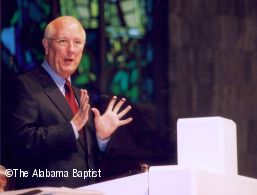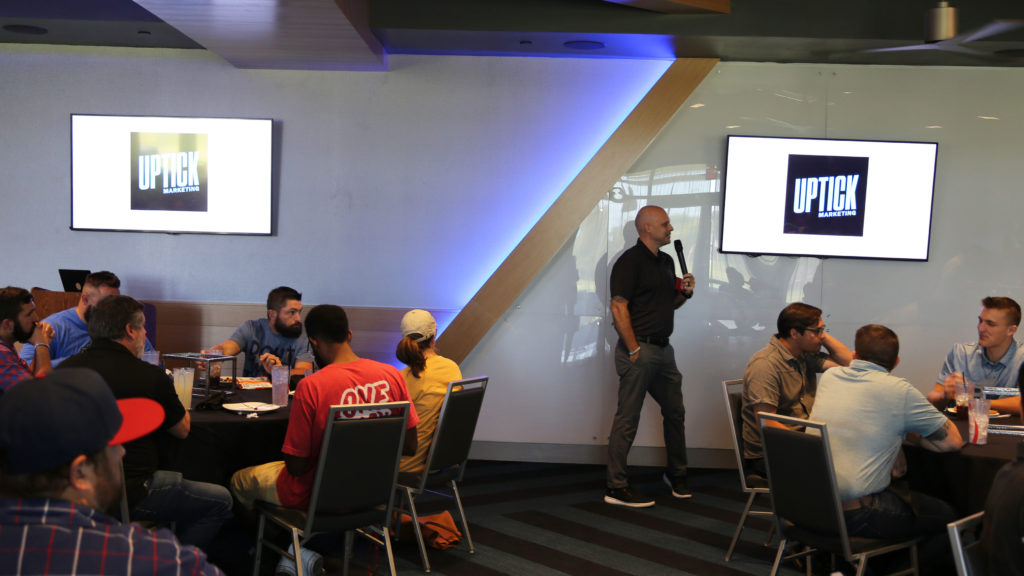The recent move among International Mission Board (IMB) officials to allow missionaries and support staff to cut themselves from employment — both through retirement and resignation incentive plans — has resulted in 20 percent of the current missions force leaving the field.
IMB President David Platt announced during the Feb. 24 trustee meeting in Richmond, Virginia, that 983 missionaries of the 4,800 on the field and 149 of the 450 stateside staff have transitioned out of IMB during the past six months.
He reported 702 missionaries and 109 stateside staff took the voluntary retirement incentive (VRI) and 281 missionaries and 40 stateside staff took the hand raising opportunity (HRO).
The number who have taken the HRO could decrease, however, because missionaries can rescind their decisions through April 21.
Another 30 staff members lost their jobs in January when the stateside communications department was eliminated.
The original news reports coming from IMB about the closing of the communications department indicated that decision was separate from the incentive packages and there was no mention of the people in those positions receiving any type of incentive benefit. However, since that time IMB spokesperson Julie McGowan clarified the information for The Alabama Baptist.
"The announcement that the RVA communications center would be closing was made the day before the HRO details were announced," she said. "Staff members from the center then had the opportunity, along with all IMB staff, to consider whether to accept the HRO. Some took the HRO, some took other positions in the home office and some chose not to take the HRO and remain as IMB employees until the communications center closes on April 29. Those in this final group are eligible for severance benefits under IMB policy."
The Alabama Baptist also incorrectly reported in its March 3 issue that other missionaries had left the field since the Feb. 22 deadline for the HRO incentive, but McGowan confirmed that information was incorrect. "No missionaries have separated from IMB since Feb. 22," she said.
‘Stage now set’
“The stage is now set financially, organizationally and spiritually for IMB to work with Southern Baptist churches to create exponentially more opportunities for disciple making and church planting among unreached peoples around the world,” Platt said.
“IMB is committed to a future marked by faithful stewardship, operational excellence, wise evaluation, ongoing innovation and joyful devotion to making disciples and multiplying churches among the unreached.”
The recent downsizing effort — referred to as an organizational reset — came after Platt’s election as president in 2014 and a thorough investigation of IMB’s financial situation.
It was discovered in 2015 that IMB had spent a combined $210 million more than it had taken in between the years 2010 and 2014.
The financial shortfalls were covered by pulling from reserves and selling much of the IMB property around the world, but it was determined a reduction of personnel was the only way to balance the organization’s budget.
IMB leaders determined reducing the personnel by 600 to 800 people would secure a healthy place for the organization because 80 percent of IMB’s budget covers salaries, benefits and support expenses.
Platt moved quickly to announce a two-phase process in August 2015 that would result in the reductions needed.
Phase One was the VRI offered to missionaries and staff 50 years or older who had been employed by IMB for at least five years.
Phase Two was the HRO that was offered to everyone, including those who had been offered the VRI and declined it.
The VRI deadline was Dec. 11, 2015, and the HRO deadline was Feb. 22.
“Even though a more involuntary process would yield more precise and predictable results, IMB chose a voluntary process that would leave as much decision-making as possible in the hands of IMB personnel,” Platt said. “Knowing that such a voluntary process would yield more imprecise and unpredictable results, we believed that we should trust God with this process and every individual within the IMB. This process remained entirely voluntary for all IMB missionaries. No IMB missionary has been required to leave the field during this time. IMB missionaries have been encouraged to make a transition off of the field only if they sense the Lord leading them to do so.”
Reactions vary
Reactions to the IMB downsizing efforts have varied among Southern Baptists. Some have applauded the move while others have questioned the motive behind it.
“I doubt [they] have any clue how badly they have hurt some of us,” one former IMB employee said.
But Platt told members of the Association of State Baptist Publications (ASBP) at a meeting in Puerto Rico on Feb. 16, “I assure you that eliminating those positions was an agonizing decision. Agonizing because, well, the IMB is a $250 million a year organization but it is also a family, fellow brothers and sisters. And as a result every part of this process has been agonizing.”
And while the full story of Platt’s vision and future plans for IMB will be unveiled during a March 3 livestream at 10 a.m. (imb.org/live), he shared a sneak preview of one effort with the ASBP members.
“I look at the globalization of today’s marketplace and I see limitless opportunities,” Platt said. “[B]ut right now … we’ve limited our capacity and that’s just not tolerable for me. I can’t pray Matthew 9:37–38 and ask the Lord to send out more workers to His harvest field and then when He answers, say, ‘Not through us.’ We’ve got to better partner with churches … in ways that do not in any way undercut the foundations on which we stand. Obviously, that would be foolish.”
The new way to make this work is called GC2 where churches can go through IMB for missionary training and support but the church will pay the missionary’s full salary.
“In order for a church to do this, they are required to continue to keep their giving to the Cooperative Program and Lottie Moon both strong and we (will) monitor it.”






Share with others: